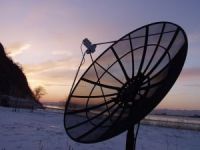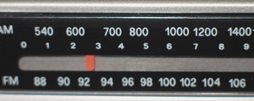Google Calls in the Cavalry in the Street View Case
 I do intend to get back to my four-part series on whether Google’s collection of information from residential Wi-Fi networks violated the Wiretap Act. That issue is being litigated in the Northern District of California in a consolidated class action of home wireless network users, and the earlier posts in my series examined the plaintiffs’, Google’s, and the district court’s arguments on this issue. See Part I; Part II. Since I wrote the first two posts, the Ninth Circuit weighed in, affirming the district court’s denial of Google’s motion to dismiss, allowing the plaintiffs to proceed with their complaint.
I do intend to get back to my four-part series on whether Google’s collection of information from residential Wi-Fi networks violated the Wiretap Act. That issue is being litigated in the Northern District of California in a consolidated class action of home wireless network users, and the earlier posts in my series examined the plaintiffs’, Google’s, and the district court’s arguments on this issue. See Part I; Part II. Since I wrote the first two posts, the Ninth Circuit weighed in, affirming the district court’s denial of Google’s motion to dismiss, allowing the plaintiffs to proceed with their complaint.
Since that post, there’s been another development: Google has filed a petition for rehearing and rehearing en banc. And they’ve brought in a bigger gun to do so — noted Supreme Court advocate Seth Waxman — indicating perhaps how far they intend to take this. Google has two basic arguments for why a rehearing should be granted. First, Google attacks what I called the panel’s “radio means radio” interpretation of the term “radio communications” — “radio communications” means “stuff you listen to on a radio” — is unworkable. Second, Google argues that the panel should never have reached the issue of whether wi-fi communications are “readily accessible to the general public” under an ordinary-language approach to that term, because that question involves disputed issues of fact. In the rest of this post I’ll review these two arguments.


 Time, and the Ninth Circuit, wait for no man. You may recall that I was halfway through my four-part series on the arguments in Joffe v. Google, the “Wi-Spy” case in which Google’s Street View cars intercepted and stored data captured from residential wireless networks. Google argued that that activity did not violate the Wiretap Act, because the Wiretap Act does not apply at all to Wi-Fi. There’s an exception in the Wiretap Act for “electronic communications readily accessible to the general public,” and the Act defines “readily accessible” for “radio communications” to mean that the communications must be encrypted or otherwise protected. Wi-Fi is broadcast over radio, and the plaintiffs did not set up encryption. Here’s
Time, and the Ninth Circuit, wait for no man. You may recall that I was halfway through my four-part series on the arguments in Joffe v. Google, the “Wi-Spy” case in which Google’s Street View cars intercepted and stored data captured from residential wireless networks. Google argued that that activity did not violate the Wiretap Act, because the Wiretap Act does not apply at all to Wi-Fi. There’s an exception in the Wiretap Act for “electronic communications readily accessible to the general public,” and the Act defines “readily accessible” for “radio communications” to mean that the communications must be encrypted or otherwise protected. Wi-Fi is broadcast over radio, and the plaintiffs did not set up encryption. Here’s